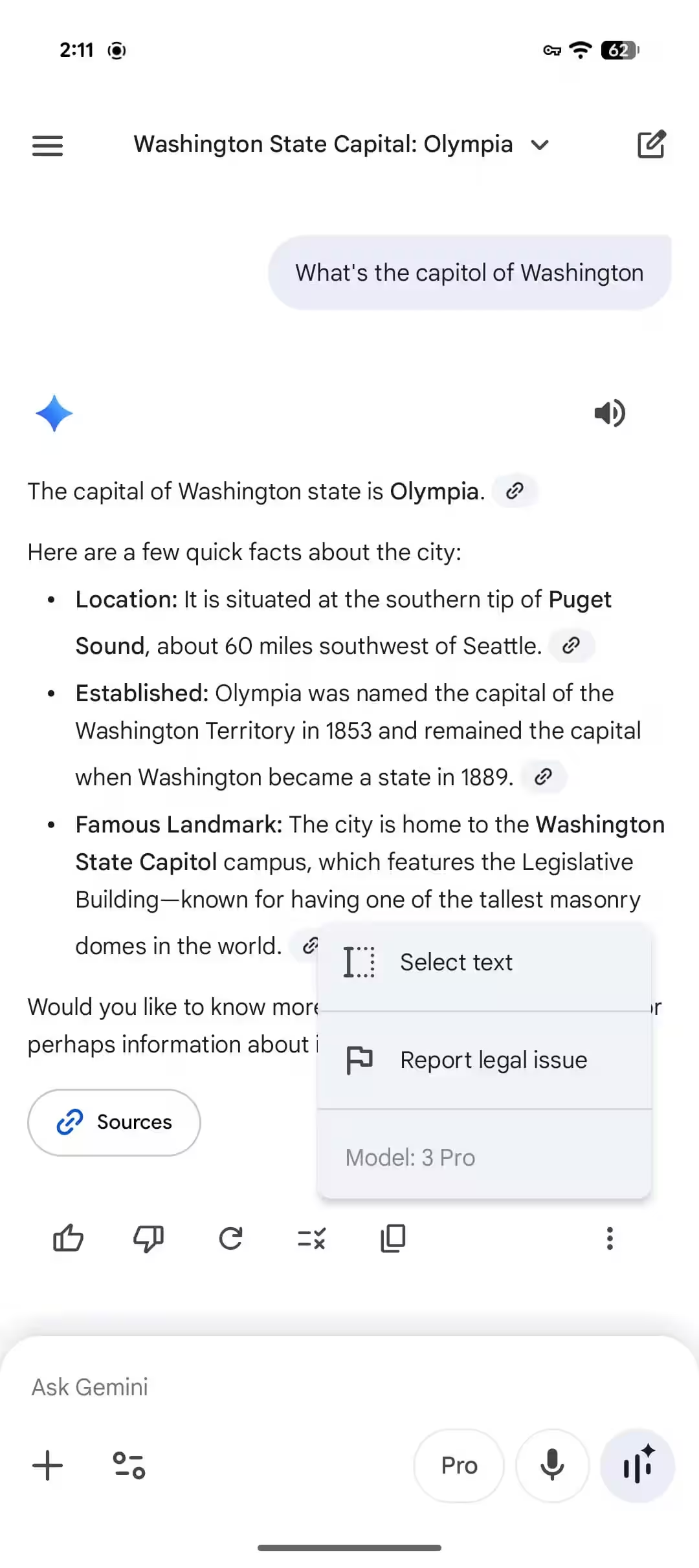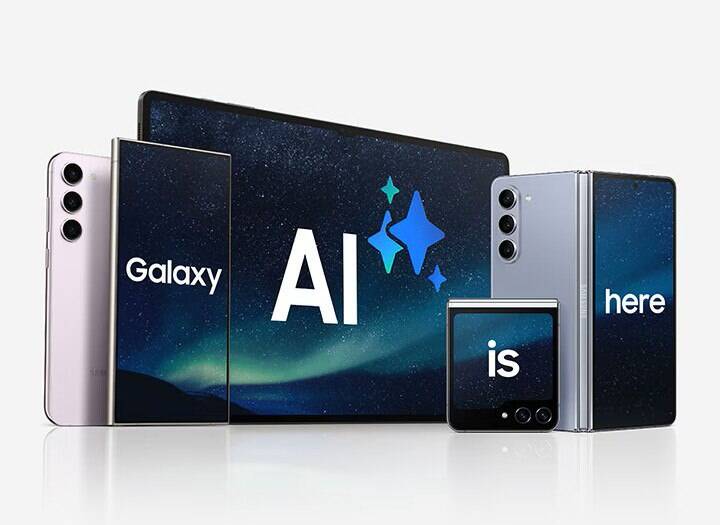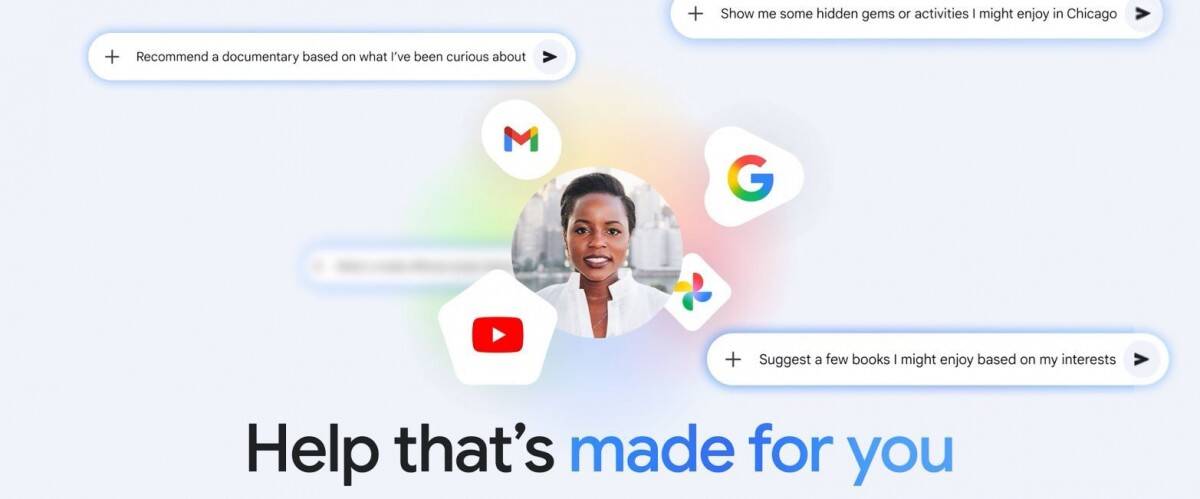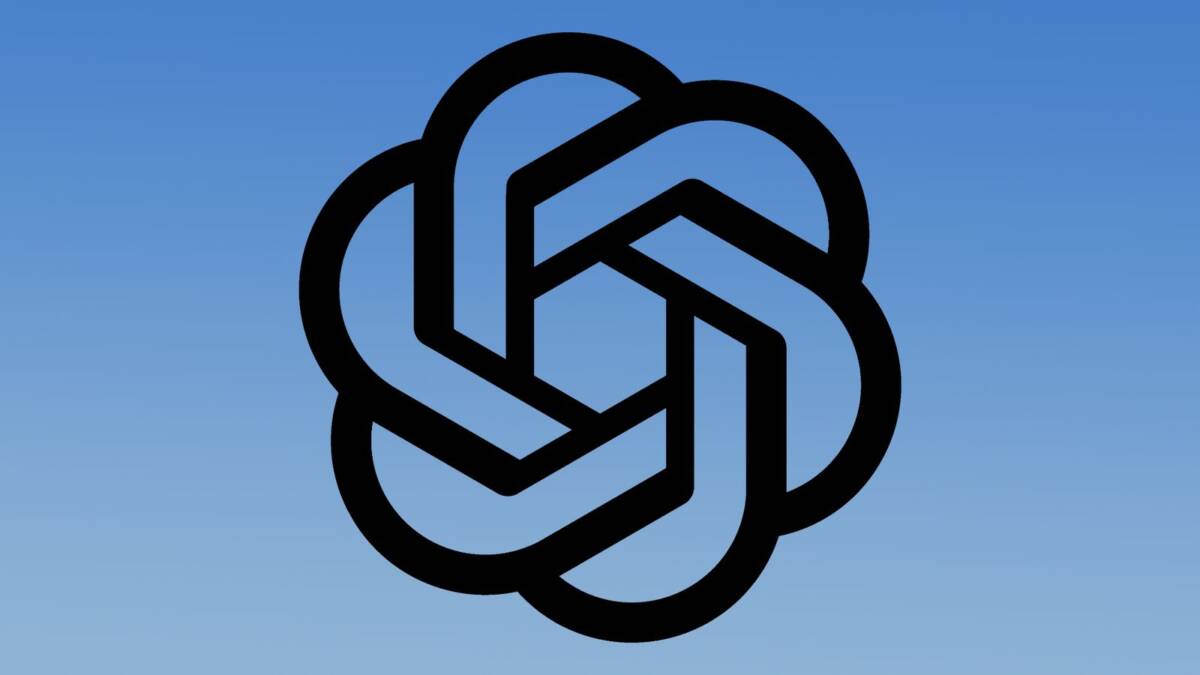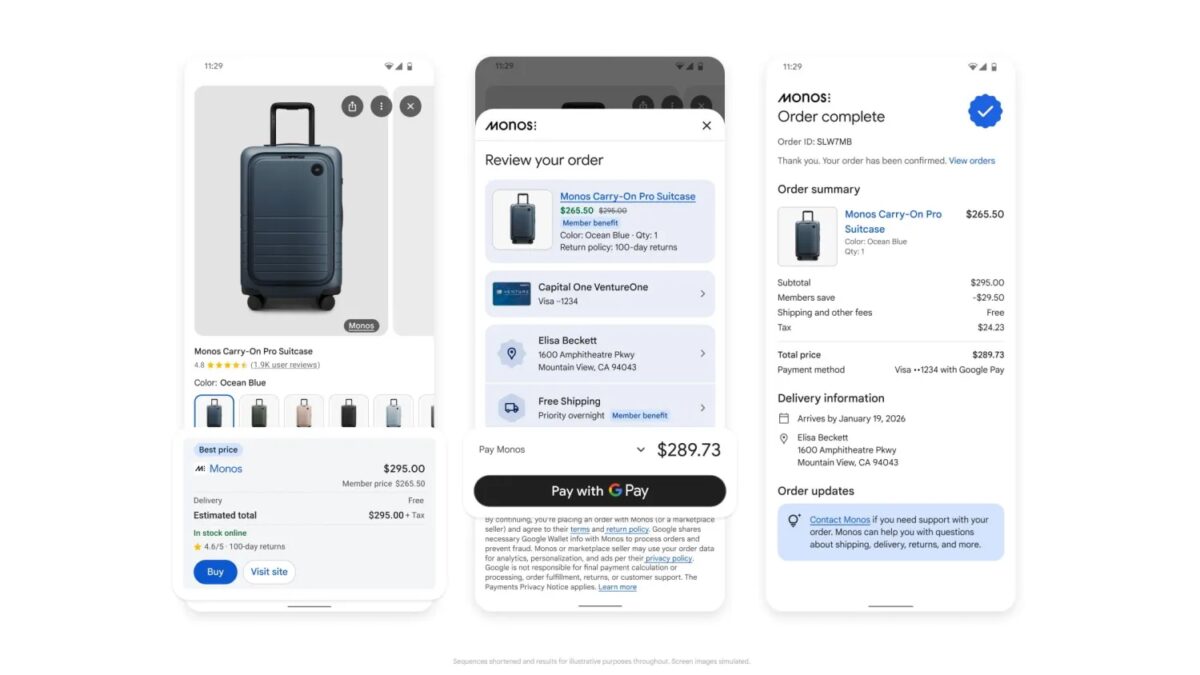Codex: a new AI agent for programmers is now available on ChatGPT
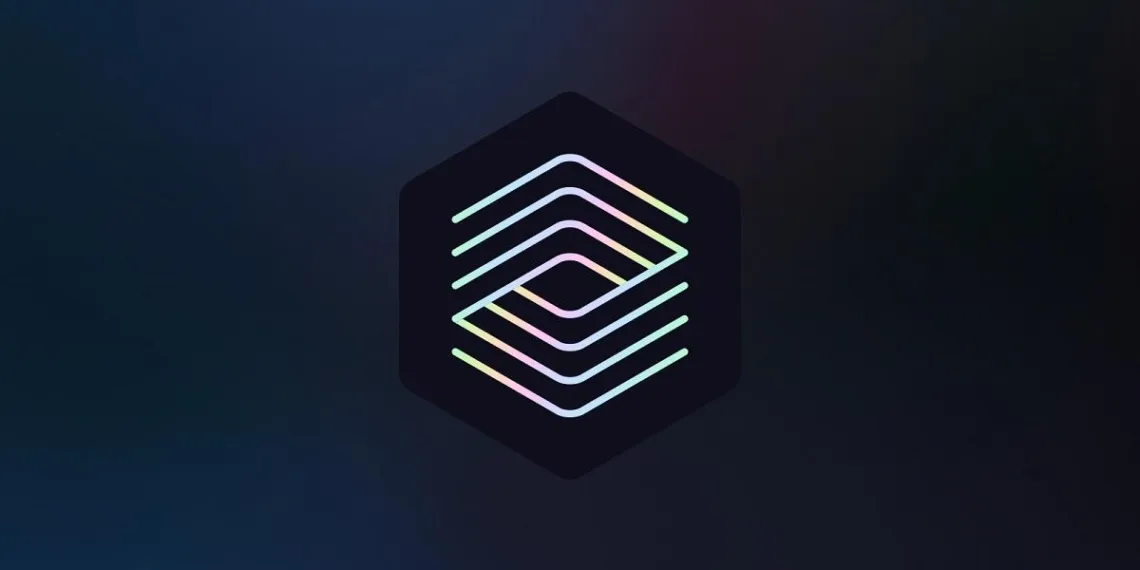
OpenAI introduced Codex, a cloud-based AI programming agent that can write code, fix bugs, and offer pull requests. It’s already available to ChatGPT Pro, Team, and Enterprise users, and will soon be available in Plus.
OpenAI has introduced Codex, a cloud-based AI agent that can write code, fix bugs, and offer pull requests.
OpenAI has launched an exploratory version of Codex, an intelligent agent for cloud-based software development. Codex can perform many tasks in parallel: write new features, find bugs, answer code questions, and suggest pull requests. All tasks are performed in an isolated environment where the agent has access to code, commands, and tests.
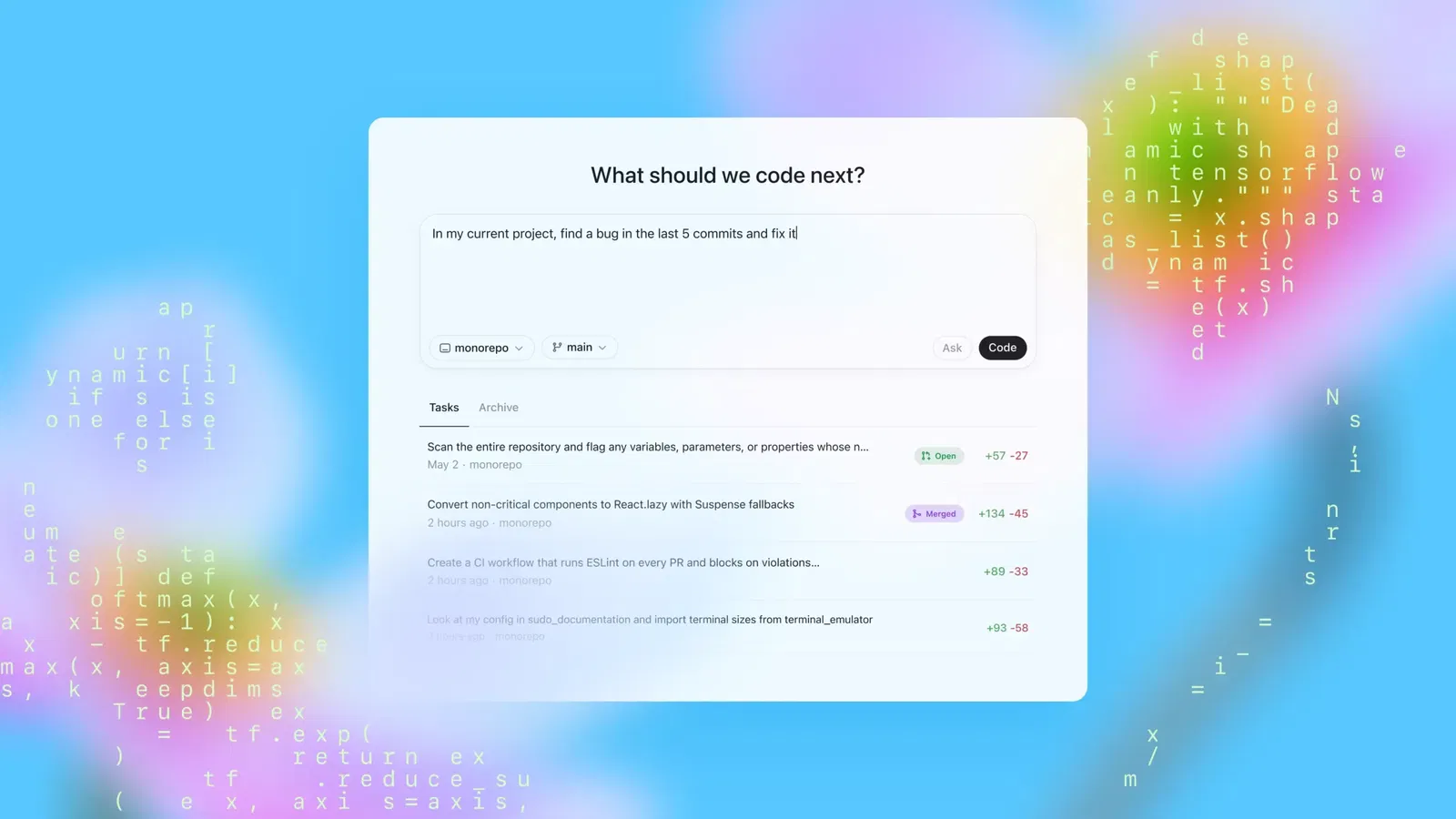
Codex is built on the codex-1 model, based on OpenAI o3 and optimized for engineering tasks. The model has been trained using real-world tasks and has gone through stages of reinforcement learning. This allows it to generate readable, “human-like” code, strictly follow instructions, and run tests until the desired result is obtained.
The model has been trained using real-world tasks and has gone through reinforcement learning phases.
How Codex Works
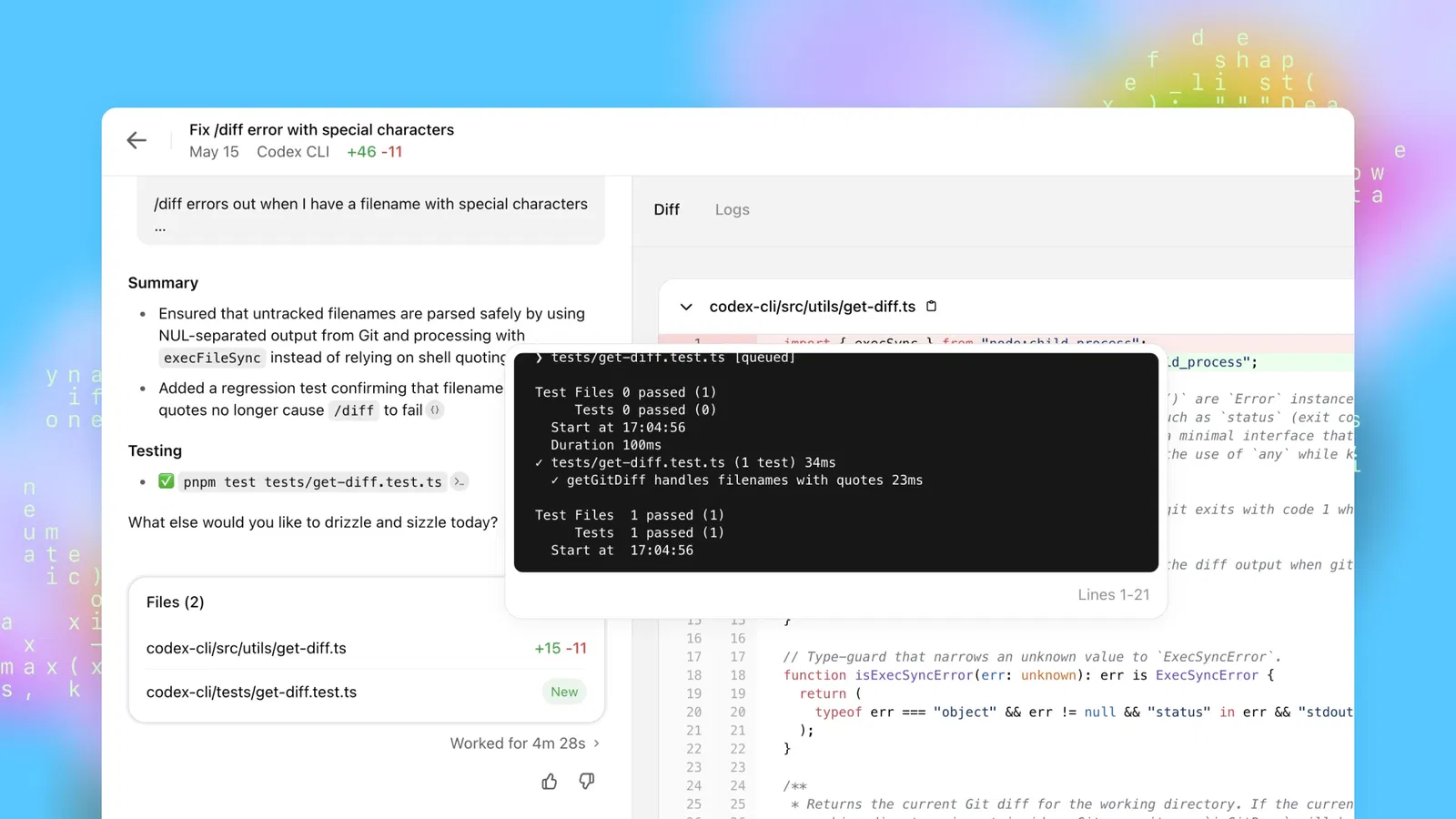
The Codex interface is built into the ChatGPT sidebar. The user can set up a task by selecting a repository and branch, and monitor the task in real time. Codex can:
- read and modify files;
- run commands (including tests, linters, and type checking);
- commit changes with a detailed log of all steps;
- provide results with explanations and test conclusions;
All tasks are performed in the cloud without an internet connection. The agent uses only data that has been uploaded by the user, including dependencies from setup scripts.
Flexible customization and documentation
Codex’s work can be guided by AGENTS.md files, which specify instructions for project navigation, testing methods, and code standards. This documentation increases the agent’s efficiency, especially when working in large or non-standard repositories.
Even without these files, Codex performs well. In internal OpenAI tests, the new model outperforms previous versions in terms of code accuracy and quality.
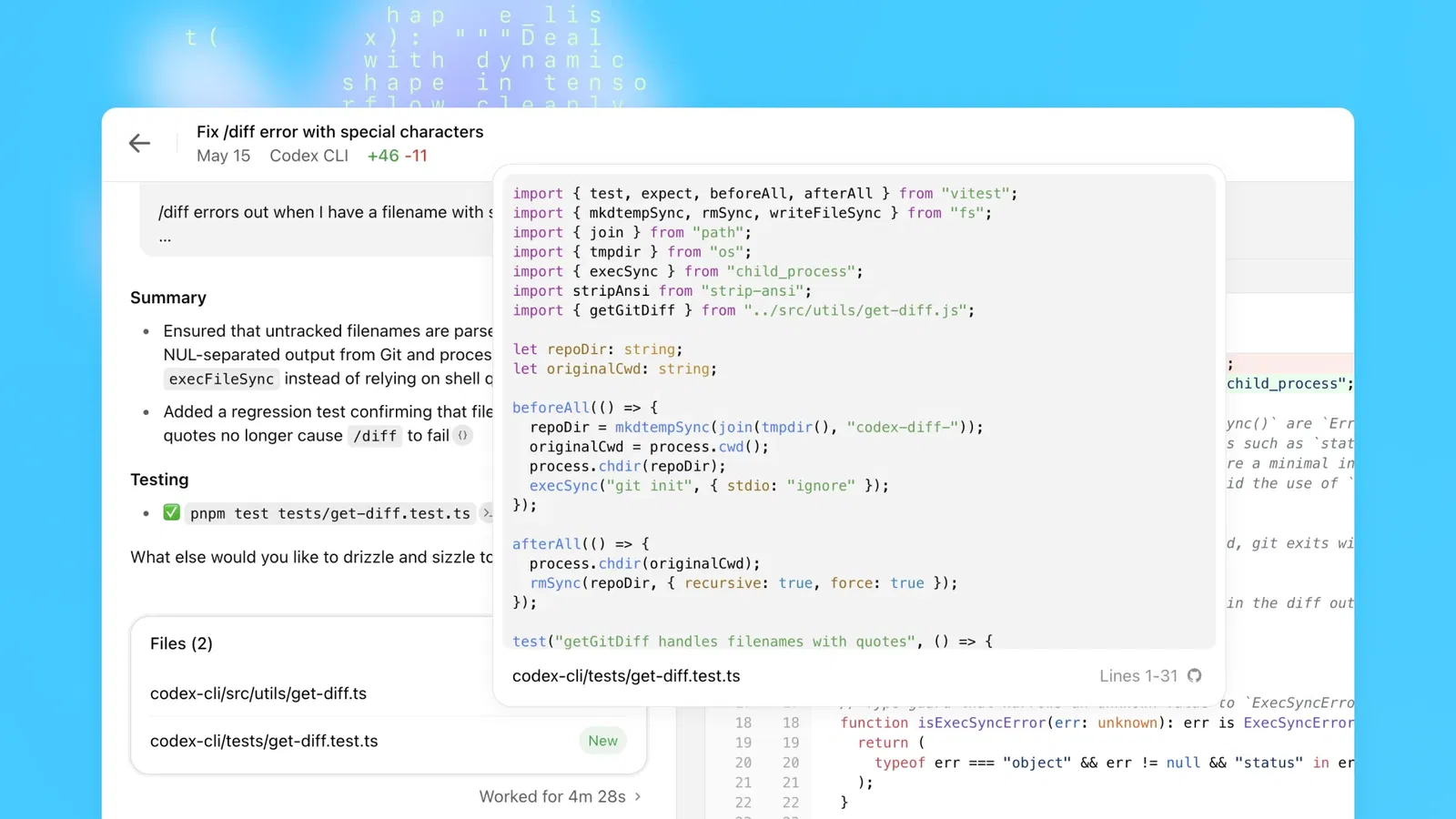
Security and Transparency
Codex was designed with a focus on security and verifiability. All agent actions are documented through logs and tests. In case of error or uncertainty, the agent reports it directly. However, OpenAI emphasizes that the final code verification must still be done by a human.
How Codex is used
Codex is also trained to deny suspicious tasks – such as those related to malware development. Updated security policies and additional model checking help to avoid abuse.
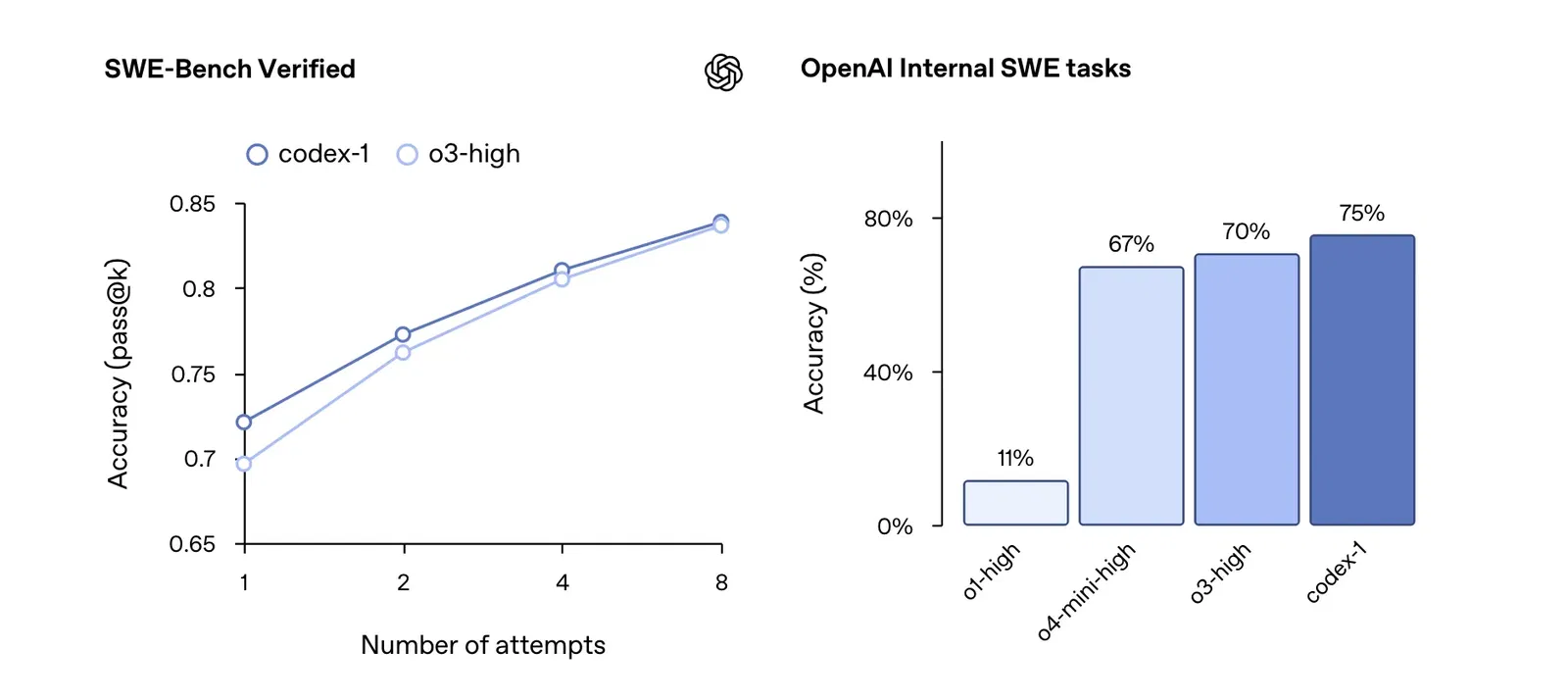
OpenAI teams already use Codex in their day-to-day development: for refactoring, writing tests, fixing bugs, and generating documentation. External partners who have tested Codex include Cisco, Temporal, Superhuman, and Kodiak. They report faster development, less stress on engineers, and an increased focus on more creative tasks.
They’ve also seen an increase in the speed of development, a reduced burden on engineers, and an increased focus on more creative tasks.
One tip from OpenAI is to assign Codex to well-defined, isolated tasks. In doing so, you can run multiple agents in parallel.
Codex CLI and the new codex-mini model
OpenAI previously introduced Codex CLI -a lightweight version of the agent that runs directly in the terminal. Today, the company released an updated codex-mini based on o4-mini. It’s faster and suitable for short queries and code edits, especially in a local environment.
Also, authorization has been simplified: now you can simply log in with a ChatGPT account, and the CLI will automatically create and connect the necessary API key. ChatGPT Plus and Pro subscribers get free API credits ($5 and $50 respectively) for the first 30 days.
Subscribers to ChatGPT Plus and Pro get free API credits ($5 and $50 respectively) for the first 30 days.
Availability and pricing
From today, Codex is available to ChatGPT Pro, Team and Enterprise users. Use will be free for the first few weeks, with limits and a flexible billing model coming later. ChatGPT Plus and Edu subscribers will soon receive support as well.
The codex-mini-latest model is available through the Responses API for $1.50 per million input tokens and $6 per million output tokens, with a 75% discount for cached prompts.
What’s next
OpenAI plans to develop Codex as a platform for flexible AI collaboration. In the future, developers will be able to manage tasks in real time, receive updates as they progress, and integrate Codex into their favorite tools, from GitHub to CI/CD.
Codex is the first step toward fully engaging with AI agents in everyday development. The potential of such systems is to increase productivity, especially for small teams and independent developers. But OpenAI emphasizes that only by exploring the implications of these interactions with partners can the full potential of these new tools be realized.
The Codex: A new AI agent for programmers is now available in ChatGPT was first published at ITZine.ru.

